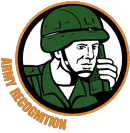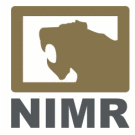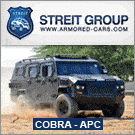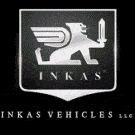The first Joint Light Tactical Vehicles (JLTV) fielded in the U.S. Army began arriving at Fort Stewart two weeks ago. The first six vehicles were delivered to their respective battalions on January 28.

The first six Joint Light Tactical Vehicles (JLTV) to be delivered to soldiers from the 1st Armored Brigade Combat Team, 3rd Infantry Division, are staged before being driven to their respective battalion motorpools. Raider Brigade Soldiers are the first in the Army to be fielded the new JLTV. (Photo Credit: Maj. Pete Bogart)
"This program has been working towards fielding trucks to soldiers for ten years," said Col. Shane Fullmer, Project Manager for the Joint Program Office, Joint Light Tactical Vehicles. "The entire program office has been focused on getting Soldiers improved tactical mobility, with better off road, better cross country, higher reliability, more comfort inside the vehicle, and significantly higher protection."
Before the first of the brigade's trucks arrived, Raider Soldiers were already learning how to take care of and drive the Army's newest vehicle during Field Level Maintenance and Operator New Equipment Training.
Sgt. Brian Wise, from B Company, 1st Battalion, 41st Field Artillery Regiment, was one of the first Soldiers in the brigade to go through the operator training and said he enjoys the new features and capabilities of the JLTV and is looking forward to training the rest of his company. "It will be different for Soldiers, it's something new and unique," said Wise. "I see us getting stuck in the mud way less than we usually do."
The JLTV program is a U.S. Army-led, joint modernization program to replace many existing HMMWVs. The JLTV family of vehicles is designed to provide a leap ahead in protection, payload, and performance to meet the warfighters needs.
Sgt. 1st Class Randall Archie, the JLTV fielding lead for the 10th Engineer Battalion, said he especially likes being able to adjust the vehicle ride height on the move to adapt to different terrain. Archie was also impressed by the numerous comfort features that make it easier for operators to focus on doing their job. "There is a ton of leg room and head room and it's easier to get in and out of the vehicle," said Archie. "You also don't have to lean forward in the seat when you wear a CamelBak since the seat is designed with a spot cut out for it."
A team from Oshkosh Defense has been working with Raider Brigade Soldiers harvesting communication equipment from turn-in vehicles and installing them into the JLTVs. The first six to complete the process were signed over to battalion representatives after the final inventories and paperwork were completed.














